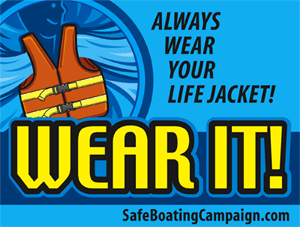 Many U.S. citizens are complaining about the higher prices for fuel at the pumps. Many are also criticizing our goverment for not doing anything to reverse the apparent trend of raising prices almost daily. Fortunately, at least one State is stepping up to the plate to try and do something to at least assist boaters. A new bill in the NC House could make it easier for boaters to get a gas tax refund.
Many U.S. citizens are complaining about the higher prices for fuel at the pumps. Many are also criticizing our goverment for not doing anything to reverse the apparent trend of raising prices almost daily. Fortunately, at least one State is stepping up to the plate to try and do something to at least assist boaters. A new bill in the NC House could make it easier for boaters to get a gas tax refund.
House Bill 421, sponsored by Brunswick County Rep Frank Iler, would allow marinas to choose to get a quarterly tax refund from the state. Boaters would benefit immediately with lower gas prices at marinas.
[Read House Bill 421 (PDF)]
North Carolina charges a road tax on all gasoline sales, but boaters are eligible for an annual refund on that tax since they aren’t using the roads. Right now, boaters have to save receipts when they purchase gasoline for their boats and file a form when they do their taxes each year.
Ocean Isle Fishing Center owner Rube McMullen thinks the new bill will be a great way to encourage more people to get out on the water fishing and boating. He says that not many people know about the boat tax refund under the current system, and those who are aware of the process don’t take the time to save receipts and fill out the form.
If the bill is approved, McMullen thinks boaters could save up to 30 cents a gallon on gas at the pump and not have to wait to get the refund once a year. In this down economy with high gas taxes, every cent can make a difference for residents.

 Recent incidents on western Lake Erie and Lake Ontario should serve to remind boaters of the dangers of boating under the influence of alcohol or drugs.
Recent incidents on western Lake Erie and Lake Ontario should serve to remind boaters of the dangers of boating under the influence of alcohol or drugs. During the next few months as we get into the more active months of the 2011 Hurricane season, we will be posting checklists and things you can do to prepare. That said, keeping boaters aware of the need to make early preparations for the upcoming hurricane season is a tough job for the nation’s boat owners. That’s because we’re all human – it only takes of few years after a devastating hurricane before memories start to fade, leading to a little apathy.
During the next few months as we get into the more active months of the 2011 Hurricane season, we will be posting checklists and things you can do to prepare. That said, keeping boaters aware of the need to make early preparations for the upcoming hurricane season is a tough job for the nation’s boat owners. That’s because we’re all human – it only takes of few years after a devastating hurricane before memories start to fade, leading to a little apathy.

 Perhaps it is just another sign of the times but last week the Coast Guard towed a 71-foot fishing boat with three people aboard after their vessel became disabled 100 miles off the coast of Cape May, N.J.
Perhaps it is just another sign of the times but last week the Coast Guard towed a 71-foot fishing boat with three people aboard after their vessel became disabled 100 miles off the coast of Cape May, N.J.
 That number is used to calculate allowable vessel occupancy rates. For example, a boat with a 16,000-pound capacity could handle 100 passengers under the current 160-pound standard weight. But starting Dec. 1, the average weight per person is jumping to 185 pounds– so, that same vessel will be limited to carrying 86 people.
That number is used to calculate allowable vessel occupancy rates. For example, a boat with a 16,000-pound capacity could handle 100 passengers under the current 160-pound standard weight. But starting Dec. 1, the average weight per person is jumping to 185 pounds– so, that same vessel will be limited to carrying 86 people.